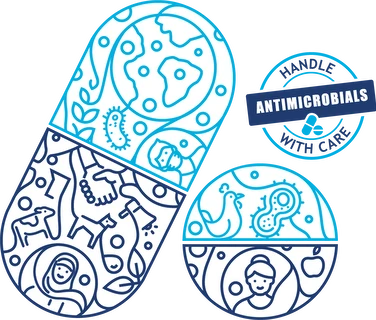You'll receive the latest updates on new standards, guidelines, and educational resources, as well as expert insights to help enhance your laboratory's performance and compliance.
World Antimicrobial Awareness Week 2025
World AMR Awareness Week (WAAW) is an annual global campaign to improve awareness and understanding of antimicrobial resistance (AMR) and encourage best practices among the general public, health providers, and policymakers, who all play an important role in reducing the further spread of AMR.
This year, World AMR Awareness Week is celebrated 18-25 November and the theme is “Act Now: Protect Our Present, Secure Our Future.”

World AMR Awareness Week (WAAW) is an annual global campaign to improve awareness and understanding of antimicrobial resistance (AMR) and encourage best practices among the general public, health providers, and policymakers, who all play an important role in reducing the further spread of AMR.
This year, World AMR Awareness Week is celebrated 18-25 November and the theme is “Act Now: Protect Our Present, Secure Our Future.”
AMR occurs when bacteria, viruses, fungi, and parasites change over time and no longer respond to medicines, making infections harder to treat and increasing the risk of disease spread, severe illness, and death. As a result of drug resistance, antimicrobials become ineffective, and infections become increasingly difficult or impossible to treat. Researchers estimate that antimicrobial resistance in bacteria caused an estimated 1.27 million deaths in 2019.1
In the recent Global Antibiotic ResistanceSurveillance Report, the World Health Organization (WHO) found that antibiotic resistance rose 5-15% each year from 2018 to 2023. It also found that one in every six laboratory-confirmed bacterial infections causing illness in 2023 were resistant to antibiotics. E. coli and K. pneumoniae are also becoming resistant to carbapenems and fluoroquinolones.
A global action plan to address the urgent problem of antimicrobial resistance was endorsed at the Sixty-eighth World Health Assembly in May 2015. One of the key objectives of the plan is to improve awareness and understanding of AMR through effective communication, education, and training.
CLSI has a longstanding globally trusted reputation for its diligent development of microbiology and antimicrobial susceptibility testing standards (AST) and guidelines on test methods and QC procedures. Additionally, CLSI annually creates and revises AST breakpoints to meet global public health challenges related to antimicrobial resistance. CLSI’s library of microbiology standards and AST guidelines establish vital performance criteria and best-practice guidelines for use in the clinical microbiology laboratory field. Learn more here.
Resources:
Antimicrobial Resistance Collaborators. (2022). Global burden of bacterial antimicrobial resistance in 2019: a systematic analysis. The Lancet; 399(10325):P629-655. DOI: https://doi.org/10.1016/S0140-6736(21)02724-0